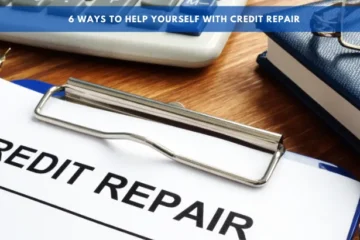Building a credit requires you to have credit. It might get a little confusing, but that’s how it works. The thing is, you have to start slow in establishing your credit history; that won’t happen overnight. But why do we need to verify credit? Why is it beneficial for us?
Establishing your credit now can be beneficial for you in a lot of ways in the future. You can take advantage of personal loans, credit cards, and mortgages if you have a good credit history.
Establishing slowly is better than having credit repair in the future.
What is credit history?
Credit history is the summary of your repayment. It records your ability to repay debts and how you are as a borrower. If you are paying late, on time, or before your due date is recorded on your credit history.
Financial institutions look at your credit history as a reference if you are creditworthy. They’ll look at your credit score and determine how much interest they will charge you and how much money you can loan them. That is the reason why establishing a healthy credit history is essential.
You can get a free copy of your credit report once every 12 months on credit bureaus. Canada has two major credit bureaus, Equifax and TransUnion.
You can find your credit history in your credit report. A credit report holds the summary of your credit history.
Credit history is made up of four things:
1. Payment history, which holds up to 35% of your credit score. It has the highest impact on your credit score, so you should avoid late and missed payments because it will significantly affect your credit score.
2. The amount you owe is 30% of your credit score.
3. 15% of your score is the length of your credit history. The older your credit history, the higher points it gets.
4. Mix of credit in use is 10% of your credit score. Active and inactive accounts have different effects on your score.
How to establish a credit history?
The important thing you need to remember when you start to establish your credit is to start slow. Be patient when building credit; it won’t happen in a blink of an eye. That won’t work. The following tips below will help you establish credit slowly but surely.
1. Start slow – slowly but surely. Applying for multiple accounts simultaneously can hurt your score and leave negative notes on your credit history. Why? Because opening an account requires a hard inquiry and a hard pull, one after another can put you as a high-risk borrower. This will put you on the lenders’ wrong side.
2. Consider applying for a student credit card – from the word itself, student credit cards are designed for students to teach them their financial responsibility. It has a lower credit limit and charges lower interest rates. That is why it is the best option for establishing your credit.
3. Secured credit card – unlike your regular credit card, SCC requires you to deposit when you open an account. When opening a secured credit card account, you won’t need a credit score because you won’t be borrowing money. What you deposit is what your credit limit will be. It is the reason why it is one of the best options to establish or rebuild your credit.
4. Keep balances low – if you stay below your limit, it will help you increase your credit score or establish a good history. Try not to max out your limit; it will only negatively affect your credit.
5. Pay on time – this is the most crucial factor in establishing your credit. A missed or even late payment can have a negative effect.
Can anyone access your credit history?
Rest assured that your it cannot be accessed by just anyone.
Without your consent, your credit history cannot be accessed that easily. Although some details are available to the public, all the confidential information is well-secured.
With your consent, they can use it to make confident decisions about you. For example, if you apply for a loan or mortgage. Your creditor can request a hard inquiry to check your creditworthiness.
For some, employers also check your it as a background check.
Creditors update your repayments on bureaus; that’s how it is updated.
Creditors sometimes update only on one credit bureau or sometimes on only one. That is why sometimes, there is a slight difference between your credit scores.
Checking your credit report is very important to see if your creditors update your repayments regularly and to review any inaccurate information. Because sometimes, even a tiny piece of incorrect information can have a drastic change in your score.
It would be best if you started to fix credit now.
Conclusion
Establishing a credit history can take a long time and requires a lot of patience. Therefore, starting early when you still don’t need loans and a mortgage is crucial. So when the time comes that you need to loan or apply for a mortgage, you are assured of getting the best deals brokers and lenders can offer.
If you need any credit repair help, Credit Repair Now is here to lend a hand and help you with your concerns.




